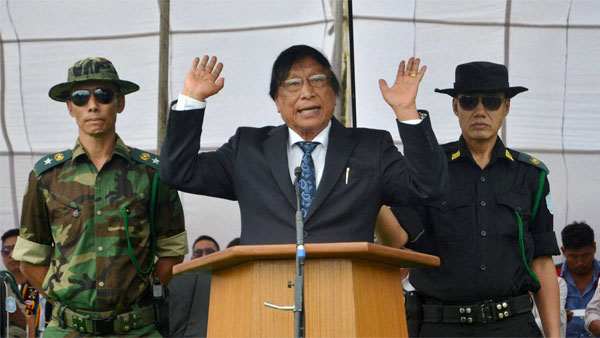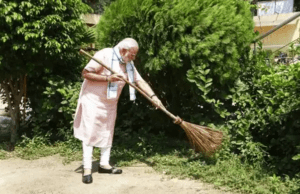Unau is your digital destination for celebrating the essence of brotherhood across the Kuki, Mizo, Zomi, and Hmar tribes.
NEW DELHI — In a strategic move to address deepening divides and foster stability, the Union government is poised to reignite the Naga peace talks after a hiatus. An informal tête-à-tête took place in the heart of the capital city between the Union government’s adept interlocutor for these discussions, A.K. Mishra, and the eminent leader of the National Socialist Council of Nagaland – Isak-Muivah (NSCN-IM), Thuingaleng Muivah, on August 21. The objective of this rendezvous was to revitalize the stalled negotiations and propel them forward.
While NSCN-IM sources relayed to The Wire that the formalization of the informal talks remains pending, a Hindustan Times report resolutely asserted that the discussions are set to recommence from August 26.
This critical revival of talks has been met with anticipation, particularly due to the preceding impasse between the NSCN-IM and the Union government. The deadlock had been rooted in the NSCN-IM’s unyielding stance, steadfastly advocating for a distinct constitution and the official acknowledgment of their emblem. However, the Hindustan Times, quoting insiders from NSCN-IM, revealed that the dialogues had been temporarily suspended as Mishra, concurrently an advisor to the Ministry of Home Affairs for the northeast region, directed his energies towards addressing the escalating ethnic conflict in Manipur.
The report indicated, “…[T]he two sides had made significant progress, particularly on NSCN-IM’s demand for a separate Naga flag and constitution.”
On August 14, a date marked as Independence Day by the NSCN-IM, Thuingaleng Muivah emphasized the inseparability of the Naga flag and constitution from the people’s sovereignty. In his words, “The flag and constitution are naturally inseparable from the sovereignty of a people. It is universally an accepted truth that flag and constitution are constituent parts of sovereignty. There is no ambiguity about it. The Indian leaders understand it too. They must take the stand to speak the truth.”
Intriguingly, this resumption of formal Naga talks coincides with a backdrop of burgeoning aspirations among the Kukis, the neighboring community residing in the Manipur hills. The Kukis have initiated calls for an independent administrative entity within the Union framework.
During the recent peace discussions involving armed Kuki factions, facilitated by Mishra on behalf of the Union home ministry, a proposed map outlining the contours of a prospective Kuki state was unveiled. This move, as reported by The Wire, was a notable stride forward by Kuki political leaders. Yet, complications arise as the proposed map encompasses certain regions in Manipur that the Nagas consider part of their ancestral land. This territorial dispute has been stoking heightened tensions and divisions between the two communities, a situation that the United Naga Council (UNC), the apex representative body of Nagas in Manipur, addressed in a fresh statement on August 21, reprimanding the Kukis.
The UNC’s statement warned the Kukis that silence from the Nagas shouldn’t be misconstrued as passive acceptance. The statement further criticized the “distortion of Naga history and insult to the Naga people” resulting from what they term as “blatant lies, lop-sided history, and fabricated information” propagated by the Kuki-Zo community.
Of significant note is the UNC’s alignment with the NSCN-IM, thereby lending credence to its stance. These contested areas in Manipur are intrinsic to the NSCN-IM’s overarching demand for a “greater Nagalim.” Muivah’s address on August 14 underscored this demand, asserting, “On the issue of integration of all Naga areas the government of India has officially acknowledged that it is the legitimate right of the Nagas and therefore, it shall be finalized accordingly.”
It’s important to emphasize that the Naga peace talks fall under the overarching ambit of the Framework Agreement inked by the Narendra Modi government and NSCN-IM in August 2015. Despite several rounds of discussions occurring in New Delhi and Nagaland, involving multiple interlocutors appointed by the Union government and engaging various other Naga armed groups, substantial progress has remained elusive.







